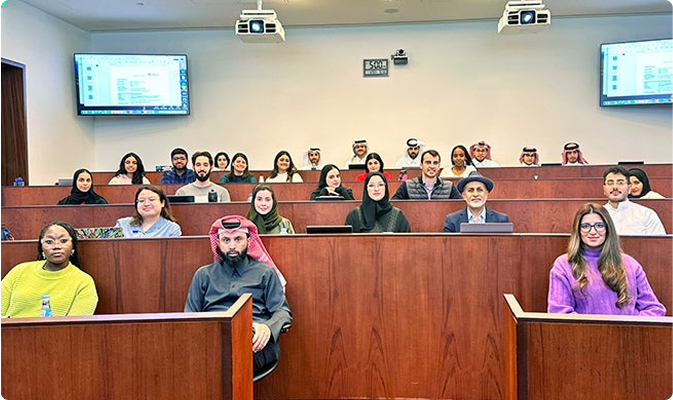Overview
As part of the IPDD Project, Hamad Bin Khalifa University (HBKU) College of Law and Georgetown University in Qatar (GU-Q) are offering a joint TradeLab clinic with the participation of law, economics, and politics students from both institutions.
TradeLab is a Geneva-based NGO, connecting students and experts via a network of law clinics to build lasting legal capacity for developing countries, SMEs and NGOs -Law Clinics to make WTO, Preferential Trade and Bilateral Investment Treaties work for everyone.
The HBKU-GUQ TradeLab will involve three types of projects and teams. Overall, industrial, digital, and sustainability policymaking are addressed in all three project types, as well as broader geo-economic considerations:
Information projects
Informing stakeholder decisions and building legal capacity by providing comprehensive research, analysis, and evaluation.
Negotiation
Providing background research, analysis, and support to stakeholders engaged in trade and investment negotiations.
Compliance
Assessing legislative compliance and drafting model legislation in the context of trade and investment agreements.
Course Description
Students will work in small groups, supervised by Faculty Members (Academic Supervisors), Teaching Assistants and Mentors from GUQ and HBKU, on specific questions of international economic law posed by Beneficiaries, such as government agencies, international organizations, SMEs and NGOs, to help build lasting legal capacity in the relevant areas.
The focus areas of the clinic are the international economic law and international trade aspects of industrial policy with a focus on digital and sustainability policies, as well as national security and geoeconomics. At the end of the semester, the students will submit and present output tailored to the Beneficiary’s needs.

Goals of the clinic
-
01
Enhance Students’ Substantive Legal Knowledge
The goal is to enhance students’ substantive legal knowledge of international economic law, international trade and geoeconomics. A thematic focus will be on the role of industrial policymaking in the shaping of international economic law and trade, as well as assessing industrial policies under international economic law. Students learn, not exclusively through traditional in-class teaching, but by working “hands-on” together in a team on a specific legal project, of real practical importance to their Beneficiary.
-
02
Improve Students’ Professional Skills
The clinic aims at improving students’ professional skills to become successful professionals: the ability to analyze complex problems, to apply the law to a set of facts, to interact with Beneficiaries, to work in groups with lawyers and economists across cultures and language barriers, to convincingly make oral presentations, to write legal memoranda or submissions, and to adapt the explanation of legal expertise to diverse audiences.
-
03
Stimulate Personal Skills and Aspirations of Students
The clinic aims to stimulate personal skills and aspirations of students: to make them aware of professional opportunities in the international economic law field, and to discover new challenges and opportunities. Through interactions with other students and a diversity of Beneficiaries (including from other countries), participants will build inter-personal skills, learn about other cultures, and experience the challenges and needs of a wide variety of stakeholders affected by international economic law.
-
04
Collaboration and Exchanges Between Students
The clinic aims to allow for fruitful collaboration and exchanges between economics students at GUQ and law students at HBKU, and develop a holistic understanding of the relevant areas of working, as well as skillset.


